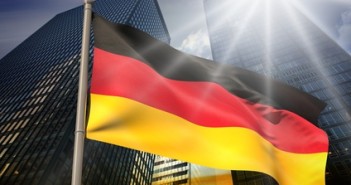Merkel wins, but the result is not so good: only a third of voters. IT is a bad day for the socialists as well: 20-21%. The third party in parliament is the AfD – extreme right. The poor showing for mainstream parties and the fractured parliament means building a coalition will be hard.
The SPD says they are “united in remaining in oppositionâ€. If Schulz and co. persist in their call, Merkel will have a very hard job in building a coalition. A coalition with only the FDP is just not enough according to these results. The only option seems to be a Jamaica coalition: CDU, FDP and the Greens.
These are exit polls. Here is the data from two television stations. The results are quite similar.
Potential market impact: EUR/USD could gap lower on the German election upsetÂ
ZDF poll:
- CDU/CSU-EPP: 33.5%
- SPD-S&D: 21%
- AfD-ENF: 13%
- FDP-ALDE: 10%
- LINKE-LEFT: 9%
- GRÃœNE-G/EFA: 9%
ARD:
- CDU/CSU-EPP: 32.5%
- SPD-S&D: 20%
- AfD-ENF: 13.5%
- FDP-ALDE: 10%
- GRÃœNE-G/EFA: 9.5%
- LINKE-LEFT: 9%

— more coming
Opinion polls leading into the elections showed a clear victory for Chancellor Angela Merkel’s CDU/CSU center-right coalition. She was expected to sail easily to a fourth and probably last term.
The center-left SPD had an upswing early in the year, when Martin Schulz became their leader. However, the SPD was in government with the CDU and could not really distinguish itself from their rivals on a variety of issues.
Battle for 3rd place
The battle for third place is fought between four parties:
- Greens: Left of center veteran environmental party which is a natural ally of the SPD.
- FDP: A liberal party which was in government with Merkel between 2009 and 2013 and found itself out of government. A charismatic leader helps it this time.
- Die Linke: A radical-left party which has strong support in the Eastern parts of Germany and is rejected by the mainstream parties.
- AfD: Extreme-right anti-immigrant party which was barely left of parliament in 2013 and its entry to the Bundestag worries many. It is also rejected by mainstream parties.
Grand coalition or a Jamaica one?
The bigger question is: what coalition will Merkel build? A grand coalition with the SPD provides stability, but after being bitten twice, the socialists might prefer rebuilding in opposition.
The second option is a coalition with the FDP. They are more business-friendly but less europhile than the mainstream CDU and SPD. A wider option is the “Jamaica coalition†which would also include the Green Party, but it would be hard to bridge the differences between the FDP and the Greens.
EUR/USD and the German elections
The German elections are far less important than the French ones. That is because mainstream, pro-European parties have a strong hold on German politics. The rise of the AfD does not give it a chance to take control, like Marine Le Pen had in France.
Nevertheless, a victory for Merkel would be an affirmation of stability in Europe’s largest economy.
In any case, markets in Asia are still closed and will respond to the real results.
More: EUR/USD weekly outlook



